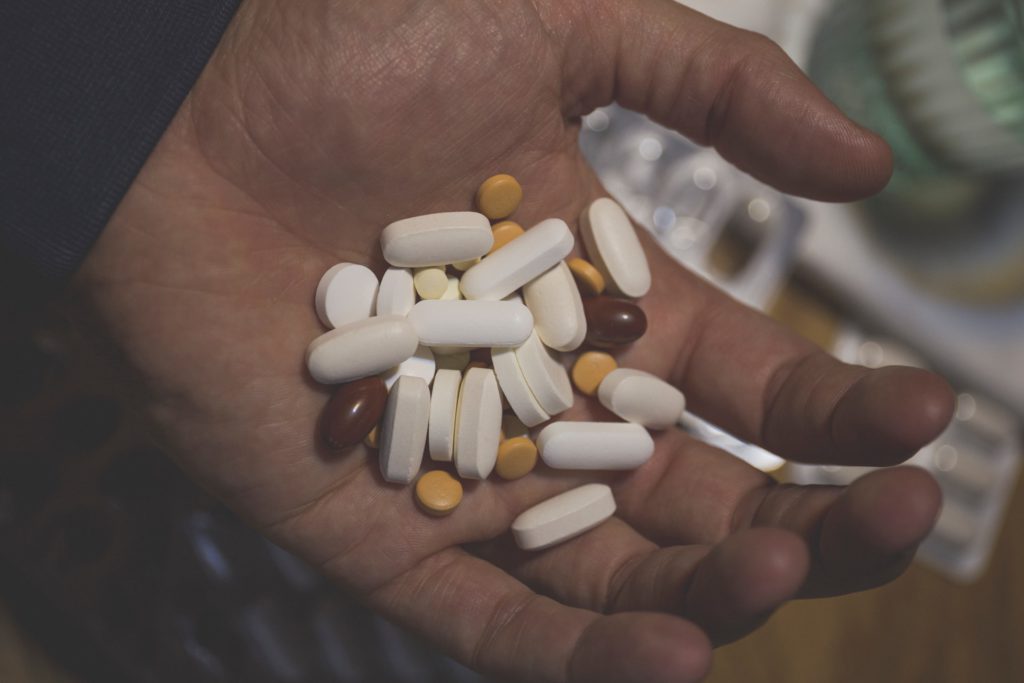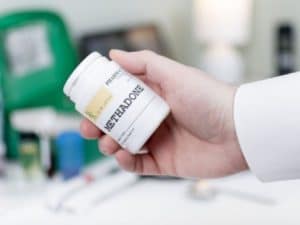
Opiate Detox Treatment: What Happens During Opiate Detox?
If you are caught in the grasp of opiate addiction, it can feel almost impossible to imagine breaking free. However, an opiate detox treatment can

August 3, 2020
Opiates are highly addictive drugs that can be difficult to stop using on behalf of severe, debilitating withdrawal symptoms. Continued use increases the risk of addiction, illness, and overdose, which is why quitting these drugs is critical to saving your life and achieving improved health. Quitting cold turkey may be possible, but isn’t recommended due to the risks and dangers associated with detoxing on your own without professional treatment at an opiate rehab center.
Here are the risks associated with quitting cold turkey, and how an opiate detox can help you safely and successfully recover from drug dependence.
Some people view quitting cold turkey as an easy, low-cost alternative to professional medical treatment at a drug rehab center. Going cold turkey prevents people from having to invest time in finding a treatment center, and usually allows them to save money on treatment-related costs. In addition to these factors, some people choose to quit cold turkey for fear of stigma or having others learn about their problem with opiate addiction. Others may try quitting cold turkey to avoid missing too much work or making childcare arrangements, which are often necessary when going through opiate detox at a treatment center.
Though quitting cold turkey may seem like a convenient and doable option, this withdrawal method can be dangerous and risky—especially for those who lack strong supports at home or who have easy access to drugs and alcohol. Without the proper education or medical care, quitting cold turkey increases the risk for relapse and overdose.
When you use opiates regularly in high amounts for a period of time, your body will become physically dependent on these substances to carry out normal bodily processes. When you abruptly stop using after becoming dependent, your body will experience a set of symptoms in response to the absence of the drug. This is known as withdrawal syndrome, which usually sets in anywhere between 8 and 12 hours after the last dose of opiates.
Opiate withdrawal symptoms may include:
These withdrawal symptoms aren’t life-threatening on their own but can lead to other complications if not handled or treated properly. For instance, symptoms like drug cravings and insomnia can become unbearable to the point you feel inclined to resume drug use for the sake of finding relief.
Quitting cold turkey without medical treatment increases the risk of several complications. First, sweating, vomiting, and diarrhea can lead to dehydration and disturbances in body chemicals and electrolytes. Given opiate withdrawal has been compared to having a bad case of the flu, those who feel too weak or ill may have difficulty with staying adequately hydrated.
Vomiting also increases the risk for aspiration—a condition in which food, liquids, saliva, and/or vomit is breathed into the airways and lungs to cause lung infection. Treatments for aspiration include oxygen therapy, airway management, and antibiotics, though quitting cold turkey eliminates access to these potentially life-saving treatments.
The biggest, most serious complication of quitting cold turkey is returning to drug use. The majority of opiate-related overdose deaths usually occur in those who have recently gone through withdrawal and detox. After withdrawal, a person’s tolerance to such drugs becomes far lower—meaning an overdose can occur even when using a tiny dose.
The relapse rate after an inpatient detox ranges from 72 to 88% after 12 to 36 months, with predictors of relapse being young age, history of injection, and failure to join an aftercare program following opiate rehab. The relapse rate for those who try quitting cold turkey may be even higher since patients often lack support and intervention in the form of a focused, comprehensive treatment plan.
In 2017, opiates including heroin were involved in 47,600 overdose deaths in the U.S., which represents 67.8% of all drug overdose deaths that took place that year. Many of these deaths occurred after people had tried quitting on their own without seeking professional help at opiate rehab.
If you decide to proceed with quitting opiates cold turkey on your own, please be aware that certain symptoms could lead to serious complications, including death. Contact your healthcare provider or an opiate rehab center immediately if you experience one or more of the following symptoms after quitting cold turkey:
Medical opiate detox is a treatment in which you withdraw from opiates while being closely monitored and cared for by trained nurses and doctors experienced in treating addiction. Detox can take place in a highly controlled and stable hospital-like setting, or at a residential rehab center where you can relax and take it easy throughout withdrawal. Many opiate detox treatments involve the use of medications that effectively reduce and/or eliminate symptoms of withdrawal.
Medical detox is safe, proven, and effective at helping people overcome physical dependence on these drugs. Treatments and medication regimens are often tailored to each individual patient based on their medical history, current health status, and the severity of their addiction. Some rehab centers even offer services including nutritional gourmet meals, daily massage, and acupuncture to complement their opiate detox programs.
Detox can take anywhere between 4 and 20 days, depending on the type of opiates that were being used. Today, medical detox for substance use disorders is covered under many health insurance plans to help people experience a safe recovery and also to reduce mortality rates driven by the country’s opioid epidemic.
Opiate detox treats physical drug dependence, which is only one component of opiate use disorder. After opiate detox, many patients need addiction treatment to modify negative attitudes, beliefs, and behaviors surrounding drug use. Without addiction treatment, patients face a high risk for relapse and overdose following withdrawal.
Opiate detox is usually the first stage of a comprehensive addiction treatment plan that also includes counseling and a wide range of behavioral therapies. Opiate detox centers that do not offer addiction treatment programs will usually refer their patients to an opiate rehab center for the continuation of treatment following detox.
Some of the most common therapies offered at rehab include cognitive-behavioral therapy, family therapy, group therapy, 12-step support groups, motivational enhancement therapy, and many more. Like medical detox, addiction treatment programs are individualized for each patient based on their unique challenges and history as it pertains to drug use.
Summer House Detox Center offers opiate detox in Florida to help people safely withdraw from opiates without facing the same risks associated with quitting cold turkey. Summer House uses medications to help patients feel more comfortable during withdrawal and offers a wide range of quality, luxurious amenities to enhance the recovery experience.
If you or someone you know is in need of addiction treatment in West Palm Beach, give Summer House Detox Center a call at 800-719-1090 to schedule a FREE consultation. You can also visit us at 13550 Memorial Highway Miami, FL 33161. We are open 24 hours a day, 7 days a week.
Resources

If you are caught in the grasp of opiate addiction, it can feel almost impossible to imagine breaking free. However, an opiate detox treatment can

Detox from opiates can produce withdrawal symptoms ranging from flu-like symptoms and insomnia to irregular heartbeat and anxiety. With symptoms like that, it’s understandable why

Methadone detox is one of the treatments usually provided in rehab centers for opioid addiction. And sometimes, opioid addicts, who are on their way to
For immediate assistance, please call our Admissions Specialists at 800-719-1090.
Speak With A Qualified Addiction Specialist 24/7